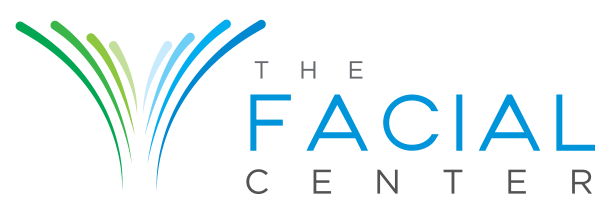Postpartum Hair Loss Treatment
 Many new mothers experience a distressing yet common side effect of childbirth: postpartum hair loss. The shedding that occurs after pregnancy can be unexpected and emotionally challenging. At The Facial Center, we understand how overwhelming this can be and offer compassionate, evidence-based guidance to support healthy hair recovery after childbirth. Many new mothers experience a distressing yet common side effect of childbirth: postpartum hair loss. The shedding that occurs after pregnancy can be unexpected and emotionally challenging. At The Facial Center, we understand how overwhelming this can be and offer compassionate, evidence-based guidance to support healthy hair recovery after childbirth.
Why Does Postpartum Hair Loss Happen?
Postpartum hair loss is primarily caused by hormonal fluctuations after giving birth. During pregnancy, higher levels of estrogen prolong the hair growth phase, resulting in fuller, thicker hair. After childbirth, estrogen levels drop dramatically, triggering a condition known as telogen effluvium—a temporary hair shedding phase.
This condition is both common and temporary:
| • |
Hormonal Shifts - A significant drop in estrogen after delivery causes more hair follicles to enter the shedding phase.
|
| • |
Telogen Effluvium - This temporary condition leads to excessive shedding, typically noticeable between 2–4 months postpartum.
|
| • |
Postpartum Hair Loss Timeline - Most moms see hair loss peak around 3–4 months postpartum and resolve within 6–12 months.
|
| • |
Emotional Impact - Sudden hair thinning can affect self-esteem, especially during an already vulnerable time. |
Though alarming, this phase is typically not a sign of permanent damage.
Is Postpartum Hair Loss Normal or a Sign of Something Else?
Most cases of hair loss after childbirth fall within the normal range of hormone-related hair loss. However, excessive or prolonged shedding may indicate other health concerns.
| • |
Normal Shedding - Mild to moderate hair fall that gradually slows down within a year.
|
| • |
Excessive Loss - If you notice clumps of hair, visible patches, or hair thinning that continues past one year, further evaluation is advised.
|
| • |
Postpartum Thyroiditis - A thyroid imbalance can lead to continued shedding, fatigue, and mood changes.
|
| • |
Iron Deficiency - Common after childbirth due to blood loss and breastfeeding demands; anemia can trigger ongoing hair loss.
|
| • |
When to See a Doctor - A medical provider may run tests for thyroid function, iron levels, and other possible causes. |
If your symptoms seem severe or out of sync with the normal postpartum hair loss timeline, professional evaluation can offer clarity.
Safe and Effective Postpartum Hair Loss Treatments
Many new mothers seek solutions that are both effective and safe while breastfeeding. The good news is there are options that support healthy hair regrowth without compromising postpartum health.
| • |
Topical Treatments - Plant-based serums, caffeine scalp treatments, and mild essential oils can stimulate follicles.
|
| • |
Oral Supplements - Nutrients like biotin, collagen, and iron—used only under medical guidance—can support recovery.
|
| • |
Natural Remedies - Scalp massage, aloe vera, and rosemary oil may promote circulation and reduce stress.
|
| • |
What to Avoid - Hormone-altering products, harsh chemicals, and unverified supplements should be avoided, especially when nursing. |
Always consult a provider before starting any new treatment to ensure it’s breastfeeding-safe.
Best Hair Products for Postpartum Hair Loss
Choosing the right hair care products can improve regrowth and reduce further damage. Many over-the-counter products support postpartum hair regrowth.
| • |
Shampoos and Conditioners - Look for formulas with biotin, keratin, saw palmetto, and niacin.
|
| • |
Leave-In Treatments - Lightweight serums with caffeine, castor oil, or peptides can nourish the scalp.
|
| • |
Ingredient Safety - Fragrance-free and hypoallergenic products reduce the risk of skin irritation during sensitive postpartum months.
|
| • |
Consult Before Use - When in doubt, discuss new hair care products with your doctor, especially if you're breastfeeding. |
Smart product selection can support hair health while being gentle on your body.
Nutritional Support and Supplements
A well-balanced diet plays a critical role in restoring postpartum hair health. Nutrient deficiencies can delay recovery and worsen shedding.
| • |
Protein-Rich Foods - Lean meats, legumes, and dairy help strengthen hair structure.
|
| • |
Iron and Zinc - Critical for follicle health and regrowth; include foods like spinach, lentils, and fortified cereals.
|
| • |
Omega-3 Fatty Acids - Found in salmon, chia seeds, and flaxseed, these support scalp hydration and reduce inflammation.
|
| • |
Breastfeeding-Friendly Supplements - Choose postpartum vitamins with biotin, B-complex, and vitamin D. Consistency is key. |
Your hair reflects your overall health—nourishing your body fuels healthy regrowth.
Hair Care Tips After Childbirth
Day-to-day routines matter. Gentle care and small changes can make a big difference in minimizing damage and protecting delicate hair.
| • |
Avoid Tight Hairstyles - Ponytails, buns, and braids can pull on weak hair, increasing breakage.
|
| • |
Minimize Heat Styling - Skip straighteners and curling irons whenever possible to reduce strand stress.
|
| • |
Smart Washing Habits - Use lukewarm water, sulfate-free shampoos, and avoid excessive scrubbing.
|
| • |
Drying Techniques - Gently blot with a microfiber towel instead of rough towel drying.
|
| • |
Brush Gently - Use a wide-tooth comb and detangling spray on wet hair to prevent tugging. |
A low-stress routine supports long-term scalp and hair integrity.
Emotional Impact & Self-Care
Beyond the physical effects, postpartum hair thinning can take a toll on emotional well-being. Many moms struggle with confidence and identity changes after childbirth.
| • |
Body Image Struggles - Visible hair changes may intensify feelings of insecurity or loss of control.
|
| • |
Stress-Related Hair Loss - Chronic stress can further disrupt hair cycles; addressing stress is key.
|
| • |
Supportive Practices - Activities like yoga, meditation, and quality sleep support both mental health and hair recovery.
|
| • |
Embrace the Journey - Confidence can be rebuilt—whether through regrowth, styling alternatives, or inner resilience. |
You’re not alone in this process, and healing includes caring for your emotional health.
When to Consider Professional Help
Sometimes postpartum hair loss requires more than at-home care. If shedding is severe or persistent, it may be time to seek expert guidance.
| • |
Pattern Hair Loss - Visible thinning at the crown or temple areas may suggest long-term issues.
|
| • |
Patchy Bald Spots - Sudden or circular patches could indicate alopecia or autoimmune involvement.
|
| • |
In-Office Treatments - Options like microneedling or PRP (platelet-rich plasma) therapy are safe and minimally invasive.
|
| • |
Customized Plans - Trichologists and dermatologists can tailor treatments based on scalp analysis and history.
|
| • |
Insurance and Cost - Discuss financial details during your consultation, as some services may be partially covered. |
A professional evaluation provides peace of mind and opens the door to targeted solutions.
Schedule a Consultation for Postpartum Hair Loss Treatment
Every mom’s experience is unique—and so is her path to recovery. At The Facial Center, we offer supportive, customized plans for postpartum hair restoration, always with your safety and lifestyle in mind.
Call 304-205-6123 to schedule your consultation and take the first step toward regaining your hair’s natural vitality.
FAQs
Is postpartum hair loss permanent?
No, postpartum hair loss is usually temporary. Most women see improvement within 6 to 12 months after giving birth as hormone levels stabilize.
Can I use hair growth products while breastfeeding?
Yes, but only use products specifically labeled as safe for breastfeeding, and consult your doctor before starting any new treatment or supplement.
What vitamin helps the most with postpartum hair regrowth?
Biotin, along with B-complex vitamins, iron, and vitamin D, are commonly recommended to support postpartum hair regrowth. Always check for safety with your provider.
How do I know if my hair loss is more than just postpartum shedding?
If you notice large bald spots, hair loss lasting beyond a year, or additional symptoms like fatigue or weight changes, it’s best to consult a doctor to rule out underlying conditions. |


 Many new mothers experience a distressing yet common side effect of childbirth: postpartum hair loss. The shedding that occurs
Many new mothers experience a distressing yet common side effect of childbirth: postpartum hair loss. The shedding that occurs